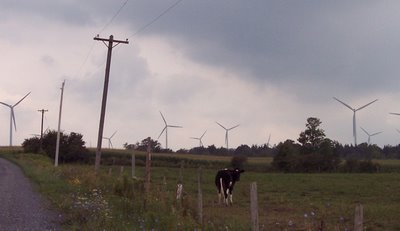
I wonder if this is still a defensible view:
"...the direct use of solar energy has been subject to special attention and persistent hopeful claims. A very careful scholar, Denis Hayes..., claimed a few years ago that 'solar technology is here,...we can use it now.' What is here now are only several feasible recipes - useful in several special situations. But a viable technology based on solar energy is not yet here. The proof is that in spite of the substantial funds spent by the US government and many private institutions to search for a solution, no one has tried to produce a pilot plant that would use exclusively its harnessed solar energy to reproduce at least the collectors with which it was initially endowed. Solar collectors for home use have been in commerce for the past century... In spite of some failures, there have been some improvements; but the basic principle of the conversion has not progressed at all. At this time, direct solar energy is just a parasite of the current technology, as electricity and, lest we forget, gasohol are." -- Nicholas Georgescu-Roegen (1986)Environmental economists should be interested in Sraffian economics. England (1986) is a start. I suppose I should also look for something that references Schefold (1989).
- Richard W. England (1986). "Production, Distribution, and Environmental Quality: Mr. Sraffa Reinterpreted as an Ecologist", Kyklos, V. 39: 230-244
- Nicholas Georgescu-Roegen (1986). "Man and Production," in Foundations of Economics: Structures of Inquiry and Economic Theory, (edited by Mauro Baranzini and Roberto Scazzieri), Basil Blackwell
- Bertram Schefold (1989). Mr. Sraffa on Joint Production and Other Essays, Unwin-Hyman




No comments:
Post a Comment